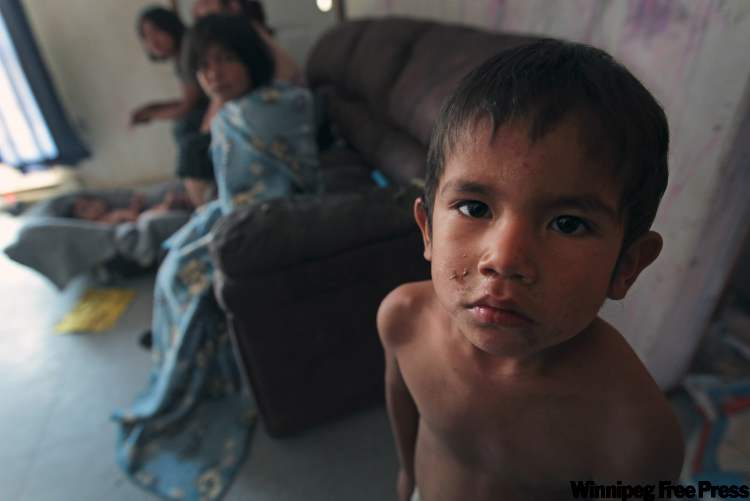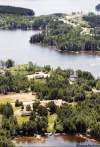Do upgrades now, most in poll say
Majority also wants Manitoba to pony up, despite jurisdictional distinctions
Advertisement
Read this article for free:
or
Already have an account? Log in here »
To continue reading, please subscribe:
Monthly Digital Subscription
$0 for the first 4 weeks*
- Enjoy unlimited reading on winnipegfreepress.com
- Read the E-Edition, our digital replica newspaper
- Access News Break, our award-winning app
- Play interactive puzzles
*No charge for 4 weeks then price increases to the regular rate of $19.00 plus GST every four weeks. Offer available to new and qualified returning subscribers only. Cancel any time.
Monthly Digital Subscription
$4.75/week*
- Enjoy unlimited reading on winnipegfreepress.com
- Read the E-Edition, our digital replica newspaper
- Access News Break, our award-winning app
- Play interactive puzzles
*Billed as $19 plus GST every four weeks. Cancel any time.
To continue reading, please subscribe:
Add Free Press access to your Brandon Sun subscription for only an additional
$1 for the first 4 weeks*
*Your next subscription payment will increase by $1.00 and you will be charged $16.99 plus GST for four weeks. After four weeks, your payment will increase to $23.99 plus GST every four weeks.
Read unlimited articles for free today:
or
Already have an account? Log in here »
Hey there, time traveller!
This article was published 06/11/2010 (5514 days ago), so information in it may no longer be current.
Island Lake communities deserve immediate plumbing upgrades to make sure homes there finally get running water, according to a survey conducted this fall for the Free Press.
Three-quarters of Manitobans polled by Probe Research agreed the four First Nations should move to the front of the line for infrastructure upgrades — with more than half feeling strongly about it.
Probe research associate Curtis Brown said Manitobans take it for granted that people living in settlements have tap water.

"I do. Anyone I know does, whether you live in Winnipeg or Brandon or a smaller rural or northern community in the province."
National Chief Shawn Atleo visited Island Lake last fall.
"It’s the kind of conditions I don’t think many Canadians know exist in our own backyard," he said. "I saw people without indoor plumbing or appropriate sewage treatment. I saw people afraid about what it was that they were drinking. I saw people having to take their buckets to the well — having to do that year-round, whatever the temperature is outside."
Winnipeggers were slightly more likely to agree Island Lake homes need to get running water immediately, compared to rural Manitobans — 82 per cent versus 72 per cent.
Brown said Manitoba towns have their own infrastructure needs, so a few people might be worried that if another community gets bumped up the priority list, they will have to wait longer.
The Manitoba poll results are consistent with the findings of a February national poll by Ipsos Reid, which concluded three-quarters of Canadians are concerned about water-quality issues on First Nation reserves once they’re made aware of them.
Ottawa currently funds water and sewer services on reserves, but not at a pace that’s keeping up with the needs. The federal government says it has a policy to help fund housing and related water services on First Nations, even though that’s not explicitly called for in Canadian treaties. The government expects First Nations to raise some of the funds through rent and water user fees.
However, First Nations and some legal experts say the right to an adequate amount of clean water is implied in the treaties. The issue has not been tested in court.
Probe asked Manitobans if the provincial government should help fund the water and sewer upgrades needed to bring running water to the Island Lake communities. Even though it’s the federal government’s responsibility, people who get sick from lack of running water sometimes end up in provincially funded hospitals.
Almost two-thirds of those surveyed want the Manitoba government to help out.
"If provincial tax dollars are going to treat people who are sick because they don’t have running water in their homes… would it not be wiser to go and make those investments so the people aren’t getting sick in the first place?" Brown said. "It isn’t just a question of jurisdiction.
"I think it really is in some respects a moral issue."
Manitoba Aboriginal Affairs Minister Eric Robinson has not ruled out a provincial contribution in light of the health issues, although Manitoba Grand Chief Ron Evans says anything the province spends should be billed back to Ottawa as a treaty obligation.
Watch Chapter Three of our No Running Water documentary below. To see Chapters One and Two, click here.
brightcove.createExperiences();
Women were more likely to be sympathetic to the First Nations on both questions — immediate funding and provincial help. Brown said women are always more supportive of spending related to health or education, while men are more concerned about taxes.
Probe found young adults aged 18 to 34 were the most likely to believe the Manitoba government should kick something into the pot to make sure their fellow Manitobans get running water as soon as possible. That could be a hopeful sign for First Nations, that attitudes are changing.
Merrell-Ann Phare of Winnipeg’s Centre for Indigenous Environmental Resources said the polling points to latent public support for solving drinking-water problems on reserves.
"This is an opportunity. Society knows there’s something wrong, but they don’t have enough information. They don’t understand the issue, but they’re concerned."
However, First Nations that don’t have money to provide water to their citizens likely don’t have any money to work on a public-awareness strategy, she said.
Atleo said it’s past time for action.
"If this was in any other part of the world, we would, rightfully so, deploy resources from this country to go help them."
helen.fallding@freepress.mb.ca How did Island Lake communities get left behind when water services were installed in other First Nations? See our FYI section today for more insight.





